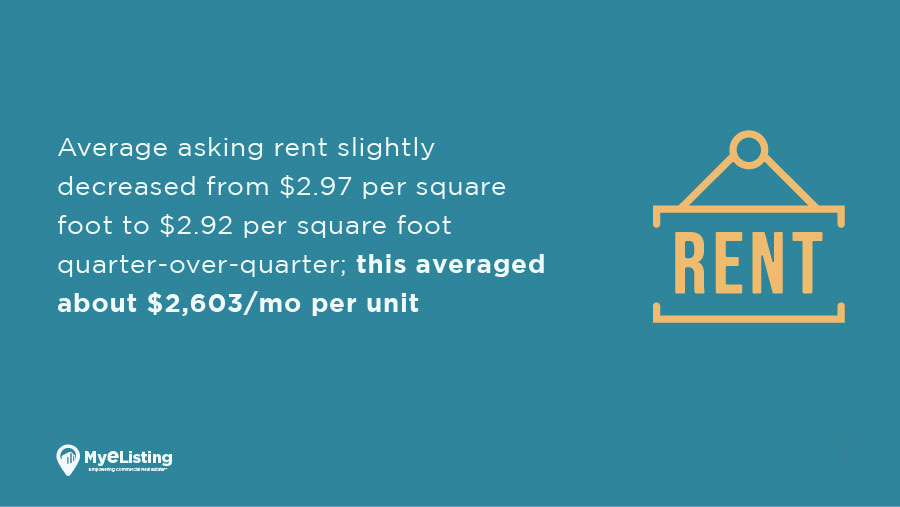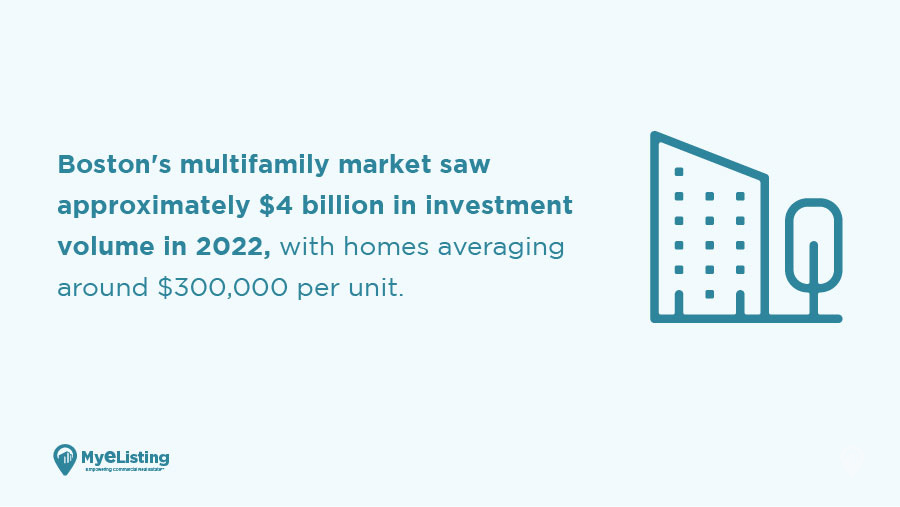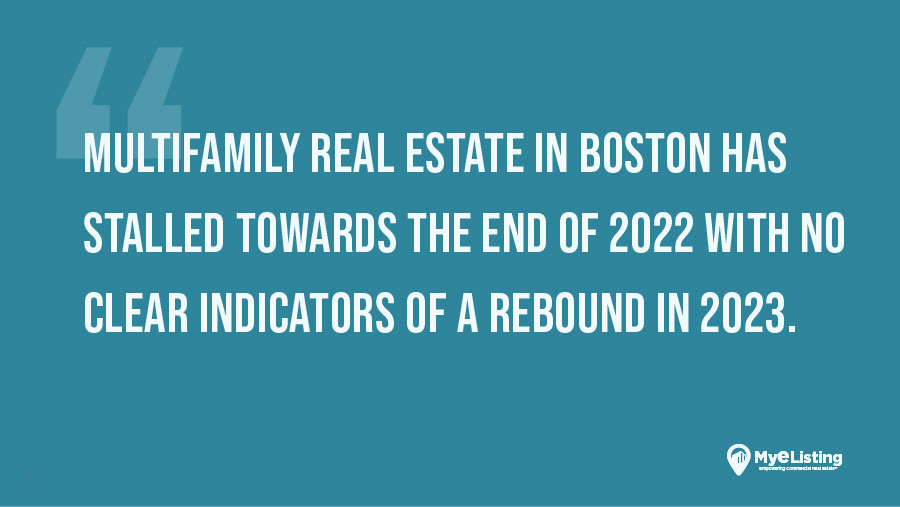Q4 2022 Multifamily Real Estate Report: Boston, MA

Specializes in providing actionable insights into the commercial real estate space for investors, brokers, lessors, and lessees. He covers quarterly market data reports, investment strategies, how-to guides, and top-down perspectives on market movements.

Demand for multifamily real estate in Boston has grown due to broader economic turbulence, with a year-over-year rise of over 2%.
Increased interest rates priced some prospective homebuyers out of the market, perpetuating the need to rent for many households.
Employment gains in Boston have also driven apartment demand, along with low unemployment, increasing wages, and steady population growth.
General Area Overview & Demographics
Located in the New England region of the United States, Boston is the largest city in Massachusetts and one of America’s oldest cities. The city is home to more than 600,000 people and is known for its world-class universities, professional sports teams, diverse culture, and historical attractions.
Boston is a diverse city with various ethnic and racial groups contributing to the population. According to the U.S. Census Bureau, 25% of the population is Hispanic or Latino, while 24% is Black or African American. Most people are White at 44%, with Asian Americans making up 5%.
Boston Universities & Climate
Boston is a hub for higher education and has several world-renowned universities, including Harvard University, Massachusetts Institute of Technology (MIT), and Boston University. With its prestigious institutions, students come from around the world to study at its renowned universities.
Boston has a humid continental climate characterized by hot, muggy summers and cold, snowy winters. Typically, the city experiences warm to hot weather from late May to September, and temperatures can reach mid-80s Fahrenheit. Winter is usually quite cold, ranging from the teens to below zero Fahrenheit.
Summary of Boston Multifamily Real Estate Performance in Q4 2022
The overall multifamily vacancy rate in Boston was around 5.2%.
With supply outpacing demand, the rate was down almost 1% from where it was in 2021. This caused landlords to pull back on driving rents up.
The Route 195 South submarket had a vacancy as low as 1.7%, while Cambridge was highest at 9%
What are multifamily rents like in Boston?

Average asking rent slightly decreased from $2.97 per square foot to $2.92 per square foot quarter-over-quarter; this averaged about $2,603/mo per unit, making Boston one of the most expensive cities to live in.
While concessions & rent abatements rose and affected rent in Boston’s market, they averaged about 1% of the asking rent.
However, some properties saw concessions of over 3% of the rent.
Those concessions included one month of free rent and a utility credit, up to six weeks of free rent, or even up to $7,260 for rent credit.
South Boston/Seaport’s submarket had the highest asking rent at $4,145/mo, and Outer Worcester was the lowest at $1,480/mo.
Purchase & Leasing Activity

Boston’s multifamily market saw approximately $4 billion in investment volume in 2022, with homes averaging around $300,000 per unit.
Matrix Hudson, a multifamily development in the Hudson submarket, was acquired for $55.5 million at $315,000 per unit.
Another development in the Newton submarket, Albemarle Gardens, went for $29.55 million at $242,000 per unit.
Notable Multifamily Real Estate Deals in Boston in Q4 2022
The following are other notable deals for multifamily real estate in Boston.
- Greenhill Park Apartments sold for $17.2 million at $187,500 per unit.
- Atlas Lofts sold for $14.9 million at $282,000 per unit.
- Pleasant Court sold for $12.8 million at $584,000 per unit.
These are a few among other transactions that took place.
New Multifamily Real Estate Development Activity in Boston in Q4 2022
There were over 17,000 units under construction in Boston during Q4, representing 7.3% of available inventory. Total inventory across all submarkets sat around 232,000 units.
In 2022, inventory was increased by 3% as over 6,600 were completed.
The largest multifamily developments to open towards the end of 2022 were a 282-unit build in Kingston, a 468-unit development in Cambridge, and a 475-unit property in Marlborough.
Market Forecast for Boston’s Multifamily Real Estate Market
Price per unit and sales volume were both at the lowest they’ve been in 18 months. This, coupled with rising construction costs, has caused the pipeline to shrink and developers to pause.
The number of properties approved in 2022 was at its lowest in years.
After a sharp decline in vacancy and rising rent in 2021, 2022 has cooled significantly.
With the possibility of Boston experiencing a stalled job market, 2023 could further perpetuate this trend.
Takeaways for Multifamily Real Estate Investors

Multifamily real estate in Boston has stalled towards the end of 2022 with no clear indicators of a rebound in 2023.
For investors looking to maximize an active market, consideration is likely better placed elsewhere.
Do your research, stay diligent, and happy investing.
Find Boston Multifamily Real Estate With Help From a Local Broker or Agent
MyEListing.com maintains one of the largest national databases of commercial real estate agents and brokers. Use it for free to find an agent or broker in Boston, MA.
Article Search
Share
All Article Categories








